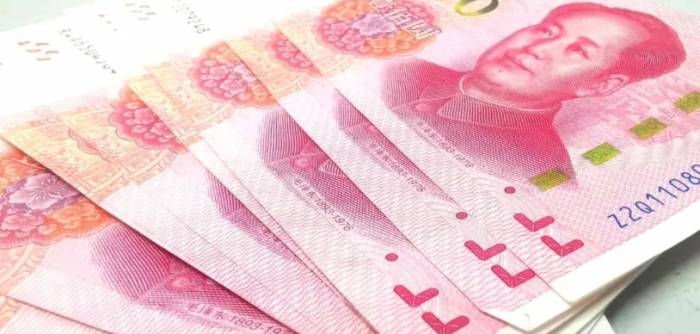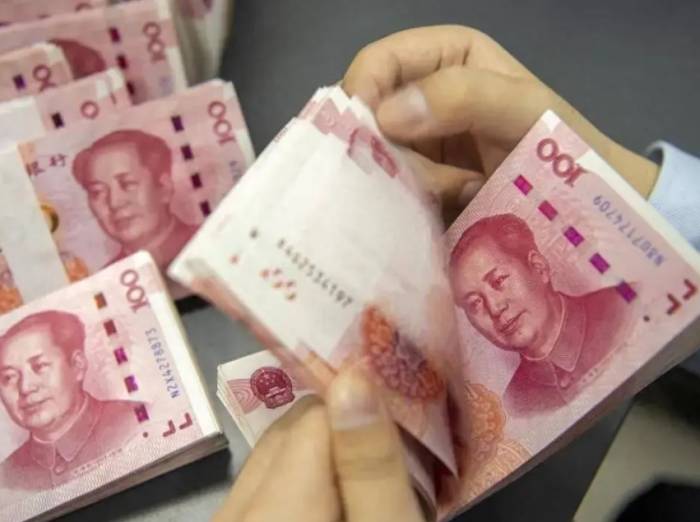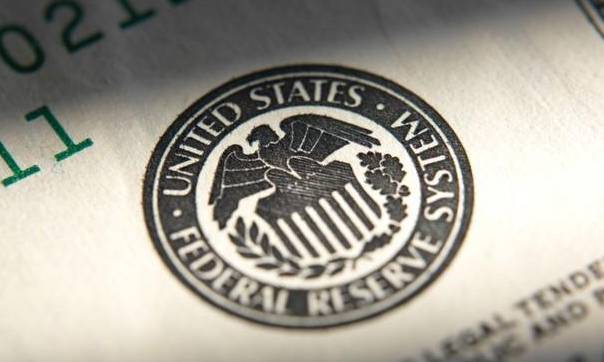The long-awaited public announcement of the reduction in the interest rates on existing housing loans has finally been made official.
On September 24th, at a press conference held by the State Council Information Office, People's Bank of China Governor Pan Gongsheng announced the reduction of interest rates on existing housing loans and the unification of the minimum down payment ratio for housing loans. This move is aimed at guiding commercial banks to lower the interest rates on existing housing loans to a level close to that of newly issued housing loans, with an expected average reduction of around 0.5 percentage points. The minimum down payment ratio for the first and second homes will be unified, with the national minimum down payment ratio for second-home loans being reduced from 25% to 15%.
A simple calculation shows that, for example, with a reduction of 50 basis points, the monthly payment for a loan principal of 1 million yuan over 30 years with equal principal and interest payments can be reduced by about 300 yuan. The last time the central bank decided to comprehensively adjust the interest rates on existing housing loans was in August 2023. According to previously disclosed data from the central bank, since the implementation of the last round of policies, more than 23 trillion yuan of existing housing loan interest rates have been reduced, with an average decrease of 0.73 percentage points, saving borrowers about 170 billion yuan in interest payments annually, which has significantly contributed to reducing the urge to repay loans early and stimulating consumption growth.
Ma Hong, a senior researcher at the Guangkai Chief Industry Research Institute, told reporters that the most direct positive effect of the central bank's reduction in the interest rates on existing housing loans is to alleviate the debt repayment pressure on holders of existing housing loans, reduce the demand for early repayment, and may encourage these residents to increase investment or consumption spending in other areas. At the same time, the new policy also provides more preferential policies for homebuyers, hoping to lower the threshold for purchasing homes, reduce the cost of buying homes, and better meet the demand for rigid and improved housing needs.
Pan Gongsheng estimates that this policy will benefit 50 million households and a population of 150 million people, with an average annual reduction in total interest payments of about 150 billion yuan, which will help promote the expansion of consumption and investment. It is also beneficial in reducing the behavior of early loan repayments, and at the same time, it can compress the space for illegal replacement of existing housing loans, protect the legitimate rights and interests of financial consumers, and maintain the stable and healthy development of the real estate market.
However, the reduction in the interest rates on existing housing loans for different borrowers may not be the same. Pan Gongsheng stated that the term "average" is used because loans are issued at different times, and the interest rate levels of existing housing loans issued at different times, in different regions, and by different banks are not the same. The predicted reduction is an expected average.
Pan Gongsheng revealed that the central bank will officially release relevant policy documents in the near future. Since many borrowers are involved, banks will also need a certain amount of time for technical preparation, and he hopes everyone will wait patiently. He also said that the next step is for the central bank to consider guiding commercial banks to improve the pricing mechanism of mortgage loans, allowing banks and customers to autonomously negotiate and dynamically adjust based on market principles.
This will effectively curb the trend of early loan repayments.Since the release of the "517" real estate policy, various regions have successively lifted the lower limits on mortgage interest rates. The interest rates for newly issued housing loans have reached new lows, with the rates for first or second mortgages mostly entering the "3" era, and some first mortgages even entering the "2" era. Due to the widening gap between the interest rates of existing mortgages and newly issued mortgages, the phenomenon of early repayment remains prevalent, and the call for lowering the interest rates on existing loans is growing louder.
Affected by the relatively high interest rates on existing mortgages, the phenomenon of early repayment is quite evident at this stage. The average early repayment rate for RMBS in June reached 19.3%, significantly higher than the 12.9% of the same period last year. According to the regional financial operation report released by the central bank in July, the average monthly scale of early mortgage repayment from September to December 2023 is 387 billion yuan, corresponding to an annualized early repayment amount of about 4.6 trillion yuan. This has had a significant negative impact on residents' consumption, becoming an important reason for the slower growth of consumption this year.
At the same time, China's real estate market is still in a deep adjustment. According to data released by the National Bureau of Statistics, from January to August this year, the sales area of new commercial housing was 606 million square meters, a year-on-year decrease of 18.0%, of which the sales area of residential housing decreased by 20.4%; the sales amount of new commercial housing was 5,972.3 billion yuan, a year-on-year decrease of 23.6%, of which the sales amount of residential housing decreased by 25.0%. By the end of August, the unsold area of commercial housing was 738 million square meters, a year-on-year increase of 13.9%, of which the unsold area of residential housing increased by 21.5%.
Wang Qing, the chief macro analyst at Dongfang Jincheng, believes that a new round of lowering the interest rates on existing mortgages will effectively curb the tide of early repayments, alleviate its impact on residents' consumption, and send a positive signal for stabilizing the real estate market.
Ma Hong, a senior researcher at the Guangkai Chief Industry Research Institute, also frankly stated that the most direct positive effect of lowering the interest rates on existing mortgages is to reduce the debt repayment pressure on holders of existing mortgages, reduce the demand for early repayment, and may promote these residents to increase investment or consumption expenditure in other areas. At the same time, the new policy also provides more preferential policies for homebuyers, hoping to lower the threshold for purchasing a home, reduce the cost of buying a home, and better meet the rigid and improved housing needs.
However, many interviewees mentioned that lowering the interest rates on existing mortgages may reduce the profits of commercial banks, and it is expected that the regulatory authorities will balance this by guiding the reduction of deposit interest rates. According to Wang Qing's calculations, as of the end of June, the scale of existing mortgages was 37.8 trillion yuan. A 0.5 percentage point reduction in interest rates means that the banks' interest income will be reduced by 189 billion yuan a year, which is about 8.2% of the total profit of the banking industry in 2023. As of the end of June, the balance of various deposits of commercial banks was 296.5 trillion yuan. This means that if the average deposit interest rate is reduced by 6.4 basis points, it can offset the impact of a 50 basis point reduction in the interest rate on existing mortgages on bank profits. In his view, the coordinated implementation of the two measures can not only reduce the burden on mortgage-holding families but also alleviate the squeeze on bank profits.
Guan Rongxue, a senior analyst at the Linping Residential Big Data Research Institute, told reporters that although the reduction in the interest rates on existing mortgages will bring operational pressure to banks in the short term, from a long-term perspective, it can slow down the current phenomenon of early repayment, alleviate the pressure on residents' loans, reduce the default risk of homebuyers, improve consumption expectations, and boost market confidence.
Data disclosed by the central bank shows that since the second quarter of 2023, the balance of personal housing loans has been negative for five consecutive quarters, contracting by a total of 1.1 trillion yuan from its peak of 38.9 trillion yuan.
Next, consider cross-bank mortgage transfers.Regarding the cross-bank transfer of existing housing loans, Pan Gongsheng stated that initially, the transfer of mortgages would be implemented within the bank itself, and then the next step would be to consider whether a cross-bank transfer is necessary.
Considering that the relevant policy documents on the reduction of interest rates for existing housing loans have not been disclosed, the operational model of intra-bank mortgage transfer mentioned by Pan Gongsheng is not clear. Cross-bank mortgage transfer was halted during the last real estate bull market and has not been resumed to this day.
In previous calls for adjustments to the interest rates of existing housing loans, two methods of reduction have been highly advocated: one is "repricing," which means that existing mortgage borrowers renegotiate or renegotiate the housing loan interest rate within the original lending bank; the other is "mortgage transfer," where borrowers transfer their existing mortgage loans to other banks and sign new mortgage contracts according to the latest loan elements.
Chen Wenjing, Director of Policy Research at the China Index Research Institute, once stated that the current execution of existing housing loan interest rates varies across regions. In the current market environment, it is more appropriate for borrowers to replace or directly reduce the interest rates of existing housing loans within the original commercial banks; transferring mortgages between different banks may lead to greater market competition and disturb the stability of expectations.
Some banking industry insiders also provided feedback to the journalist, expressing concern that rashly restarting mortgage transfers could trigger excessive competition or even cutthroat competition among commercial banks, which is detrimental to China's banking industry, where the net interest margin has already narrowed to a historical low.
Citi Group's Chief Economist for Greater China, Yu Xiangrong, also advocated for the introduction of a mortgage refinancing mechanism. Against the backdrop of a significant drop in interest rates, households should have the right and opportunity to renegotiate mortgage contracts with banks, replacing the original high-interest contracts with new ones.
"Such a refinancing mechanism is currently missing in our country. If such a mechanism is introduced, according to market principles, banks and depositors (borrowers) can renegotiate interest rates," Yu Xiangrong said. Some households may not be sensitive to interest rates and may not be in a hurry, which gives banks more buffer periods and avoids a one-time impact on the banking system.
In addition, Yu Xiangrong also pointed out that introducing a market-oriented refinancing mechanism also has long-term benefits. For example, during the easing cycle, households have a channel to reduce interest pressure. During the real estate upcycle, the net value of housing for households increases, allowing them to borrow more and increase leverage. A market-oriented existing loan refinancing mechanism can convert paper wealth into actual purchasing power, which is also beneficial for releasing the potential of domestic demand in the long run.
Tao Chuan, Chief Economist at Minsheng Securities Research Institute, also mentioned another form of "mortgage transfer" overseas. Tao Chuan stated that from the overseas experience, "mortgage transfer" is one of the policy options for the government to stimulate the economy. Taking the United States and Japan as examples, when the real estate market is sluggish and residents face significant income pressure, the government issues relevant policies to replace existing housing loans, alleviate real estate-related risks, reduce the spending pressure on residents, and thereby stabilize the economy.
Tao Chuan pointed out that the implementation of overseas mortgage transfer policies relies not only on residents and banks but also on government participation and leadership. Since mortgage transfers involve multiple departments such as banks and residents, overseas governments will first establish a special purpose entity for the acquisition of existing housing loans, and then provide new loans to residents through this entity. This ensures the health of the balance sheets of commercial banks and the scope and effectiveness of the implementation of mortgage policies.Additionally, Pan Gongsheng also mentioned "guiding commercial banks to improve the pricing mechanism for mortgage loans, allowing banks and customers to autonomously negotiate dynamic adjustments based on market principles." However, borrowers often find themselves in a weak negotiating position in front of banks, and the specific implementation level still awaits further clarification from relevant departments' policy documents.






























Add your perspective